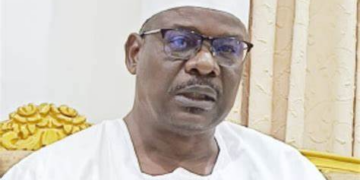Kaduna State government has said it would offer free screening services for half a million citizens across the state for non-communicable diseases like hypertension and diabetes.
A statement by the commissioner for health, Hajiya Umma Ahmed, said that the screening which will be done in two phases across the three senatorial zones, is tagged “Project 10 Million: Know Your Number, Control Your Number.”
According to the commissioner, the free screening exercise is in line with the Nigeria Health Commissioners Forum (NHCF)’s national initiative aimed at combating the rising prevalence of non-communicable diseases (NCDs), particularly hypertension and diabetes, in the country.
Umma said that the would-be beneficiaries of the screening exercise are adults from 18 years and above, adding that “NCDs such as hypertension and diabetes pose a serious health challenge, contributing to approximately 27 per cent of all annual deaths in Nigeria totaling around 447,800.”
She promised that the first phase will in Zaria, Sabon Gari, Makarfi and Soba local governments in Zone 1 and Kaduna North, Kaduna South, Chikun and Igabi local government areas in Zone II.
The statement further said that in Zone III, the free screening will take place in Jemaá, Kachia, Zangon Kataf and Kaura local government areas.
“The designated locations include PHCs, general hospitals, markets, motor parks, higher institutions of learning in the selected LGAs as well as state and federal secretariats, government house, state house, ministry of health and the primary health care board.
“This campaign will focus on both urban and rural populations, with a special emphasis on underserved communities to ensure equitable access to free screening and treatment services.
“The initiative seeks to enhance public awareness, improve data collection and foster collaboration among various healthcare stakeholders to improve overall health outcomes,’’ she added.
The commissioner said the screening exercise would provide immediate counseling and referrals for individuals with abnormal results and increase public awareness about hypertension and diabetes.
She pointed out that the likelihood of dying from these conditions between the ages of 30 and 70 is estimated at 17 per cent, underscoring the urgent need for intervention.”











